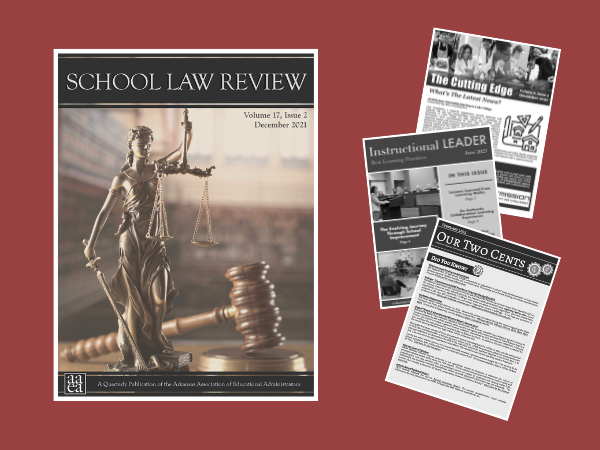
3 minute read
Publication Sneak Peek
School Law Review
This segment features content from other AAEA publications. School Law Review is a quarterly publication available to subscribing districts. The following excerpt comes from the September 2025 issue.
SIGNIFICANT U.S. SUPREME COURT DECISIONS DURING THE 2024-2025 TERM
The U.S. Supreme Court recently completed its 2024-2025 term that included a fair number of decisions with implications for school boards and districts.
A.J.T. v. Osseo Area Schools (2025)
This case involved a teenaged student with a rare form of severe epilepsy that materially limits her physical and cognitive functioning. The student experienced seizures that prevented her from attending school in the mornings. In the first few years she attended school in another state, that school accommodated her by permitting her to avoid morning activities and instead receive evening instruction. When the student’s family moved to Minnesota in 2015, the district denied her parents’ repeated requests to include evening instruction in her IEP. The parents filed a complaint under the Individuals with Disabilities Education Act (IDEA) alleging that the school’s refusal to provide after-hours instruction denied the student a free appropriate public education. A hearing officer determined the district had violated the IDEA and ordered the school to provide compensatory education and evening instruction. Federal courts subsequently affirmed the parents’ IDEA claims.
The student and her parents then sued the school district for disability discrimination under the Americans with Disabilities Act (ADA) and Section 504 of the Rehabilitation Act of 1973, seeking a permanent injunction, reimbursement for certain costs, and compensatory damages. The district court granted summary judgment for the school district, and the Eighth Circuit (the federal appellate court with jurisdiction over appeals from Arkansas federal courts), affirmed. In its decision, the Eighth Circuit stated that a school district’s failure to provide a reasonable accommodation was not enough to state a claim of disability discrimination under the ADA and Section 504; rather, a plaintiff is required to prove that the school officials conduct rose to the level of bad faith or gross misjudgment.
In a unanimous decision, the Supreme Court reversed, holding that students’ claims under the ADA and Section 504 related to their education do not require a heightened showing of “bad faith or gross misjudgment” but are instead subject to the same standards that apply in other disability discrimination contexts. These standards permit plaintiffs to establish violations under the ADA and Section 504 by showing intentional discrimination, most typically satisfied by “deliberate indifference” – a standard requiring only a showing that the defendant disregarded a strong likelihood that the challenged action would violate federally protected rights.
This decision significantly eliminated the heightened standard previously applied by the Eighth Circuit to cases in which students and parents seek compensatory damages from school districts.






